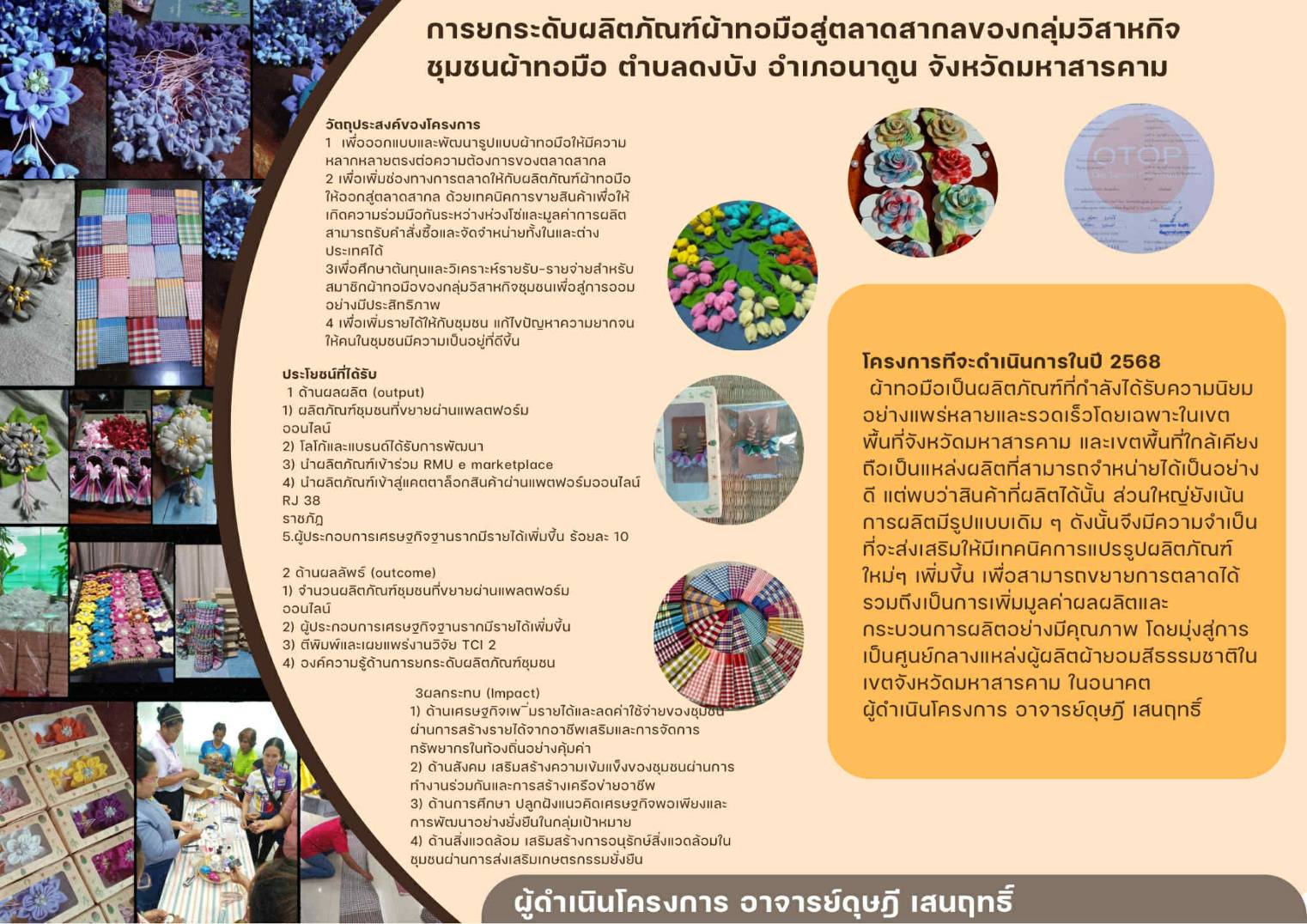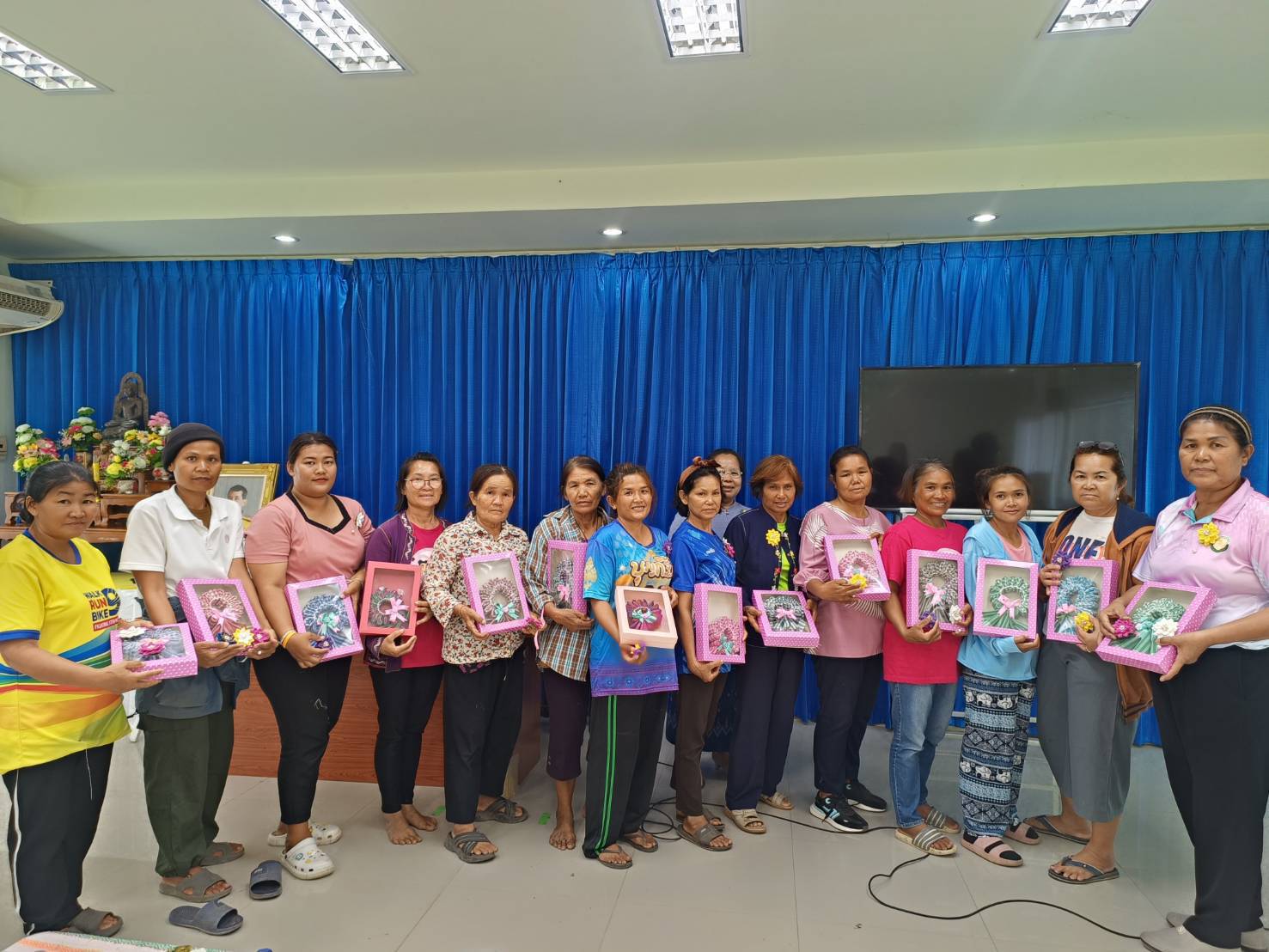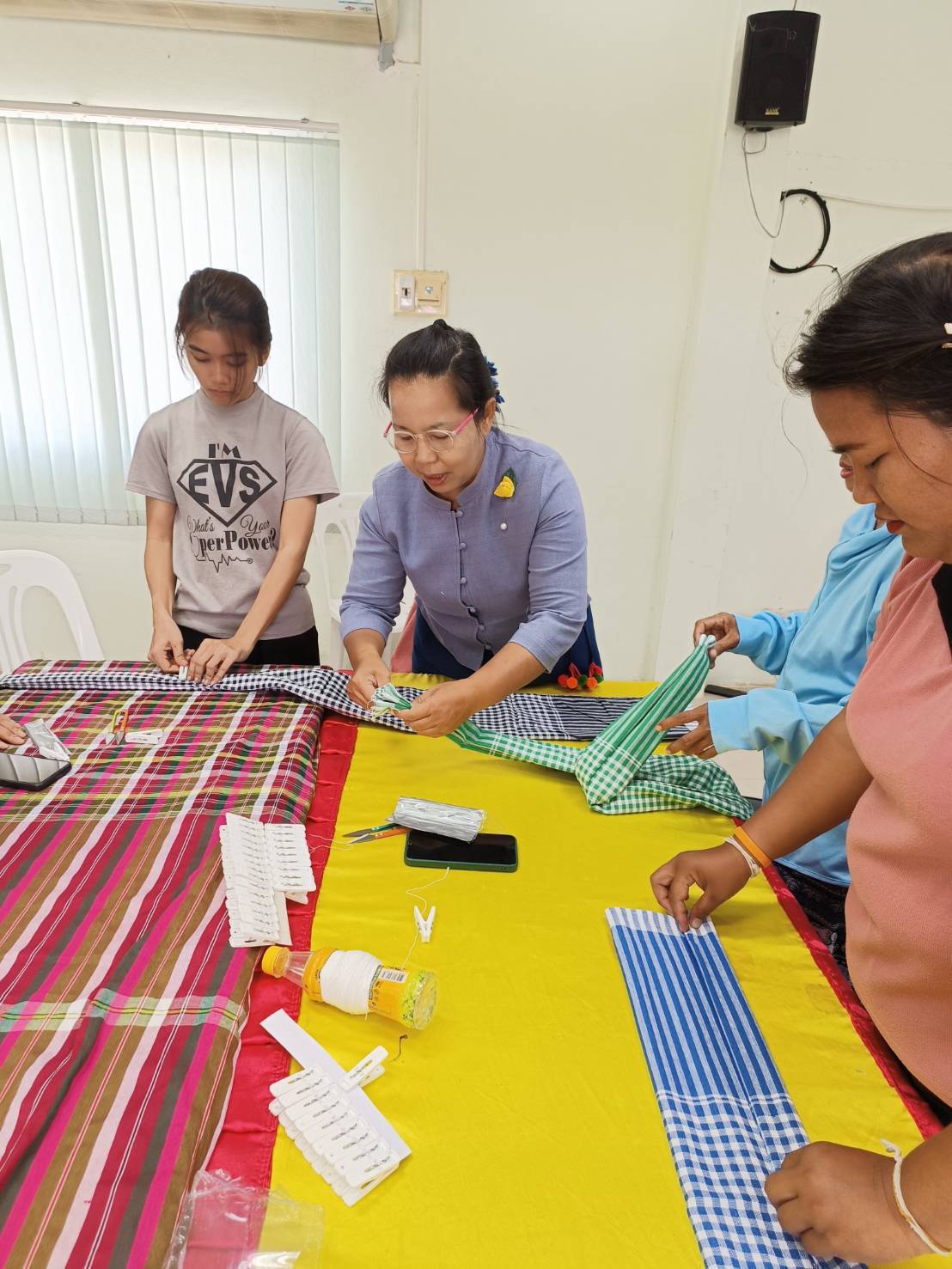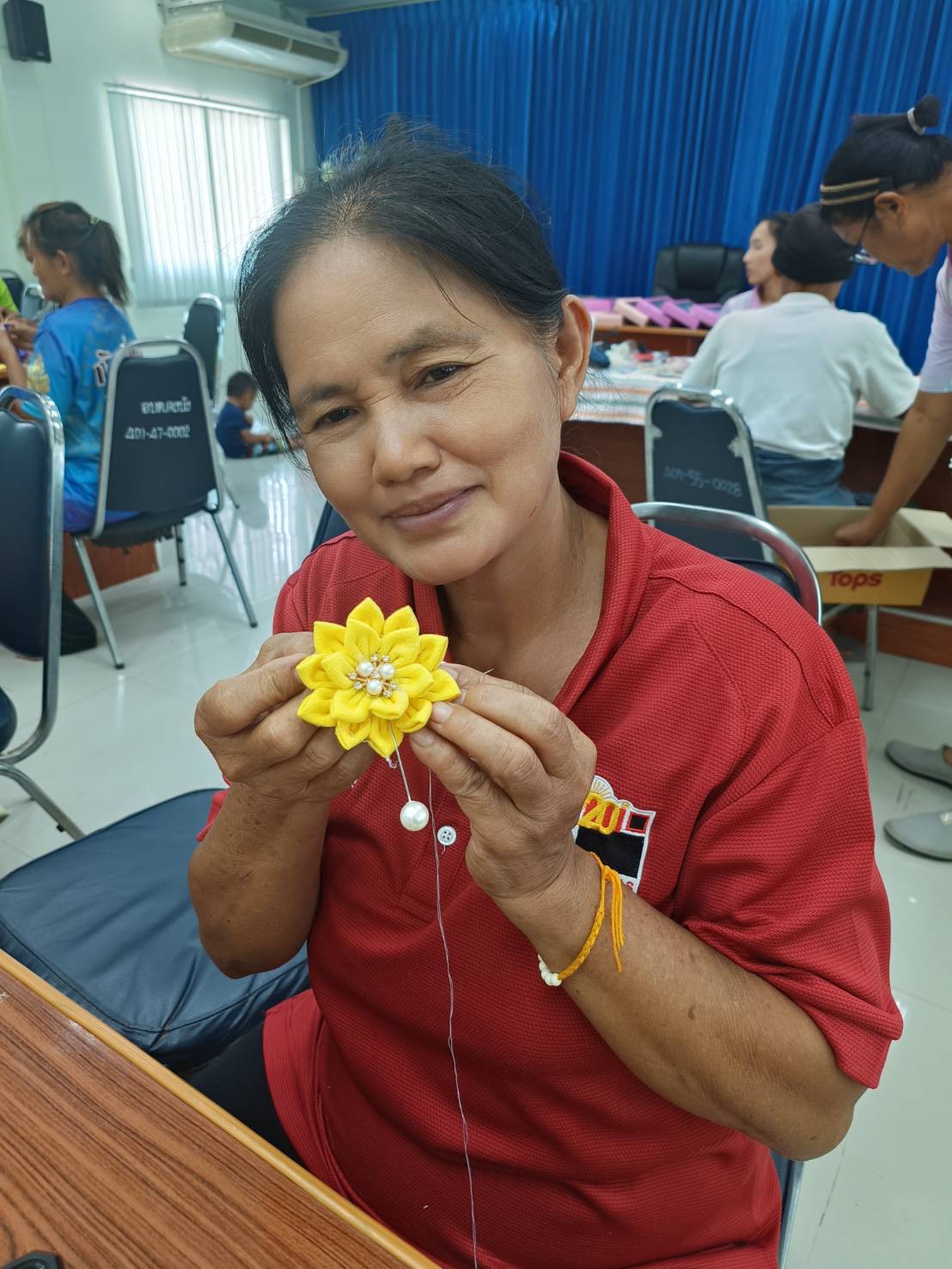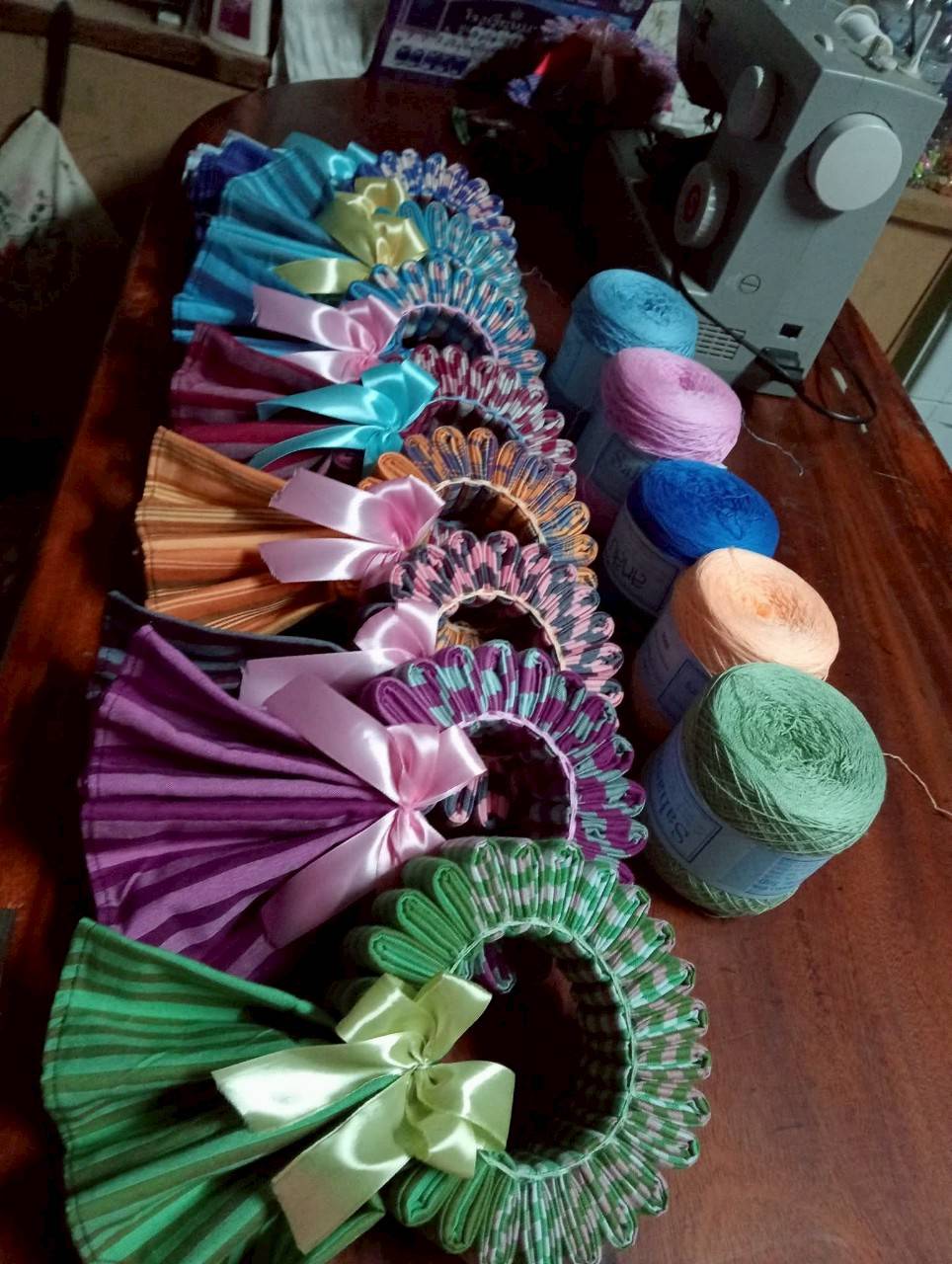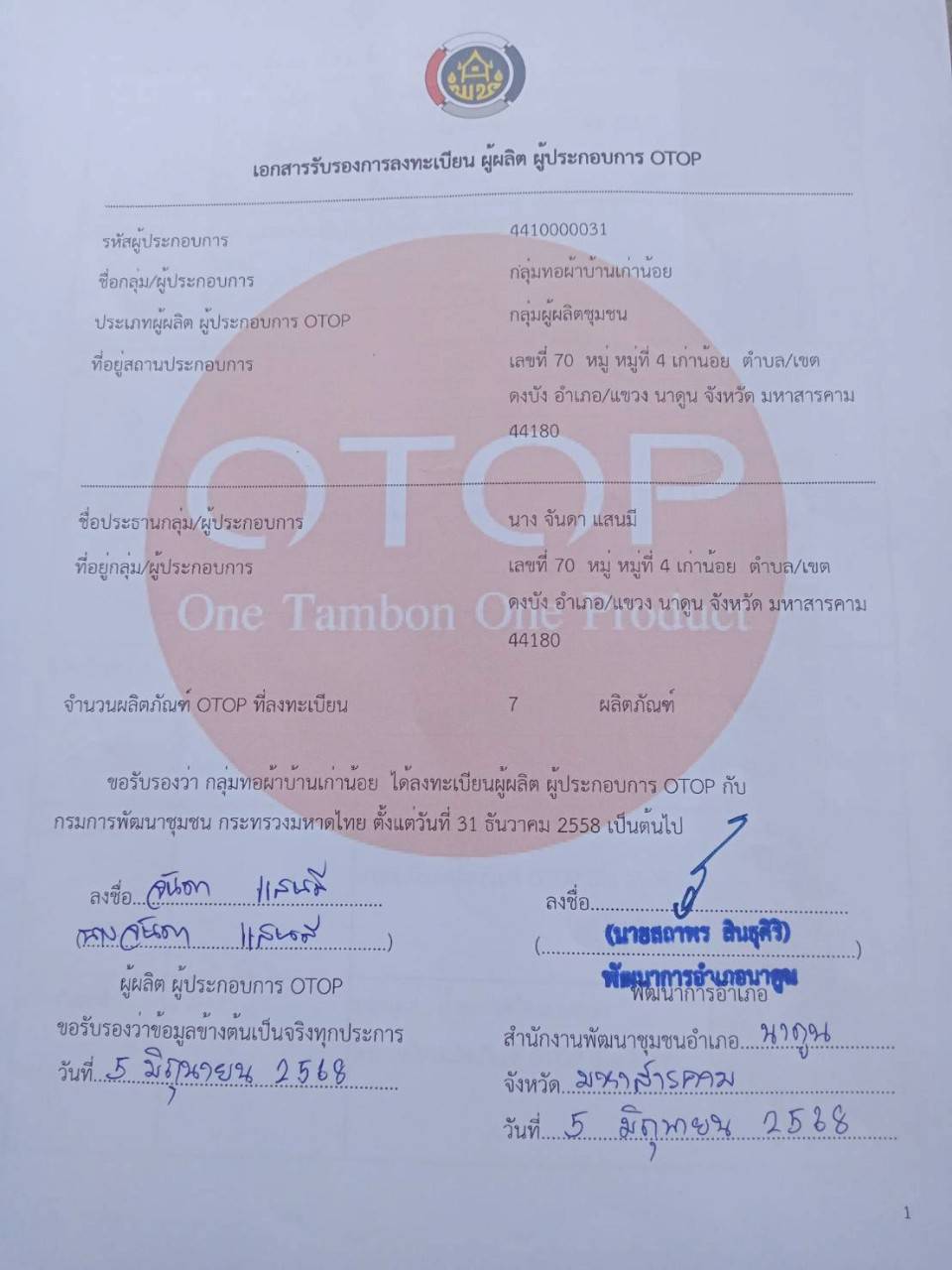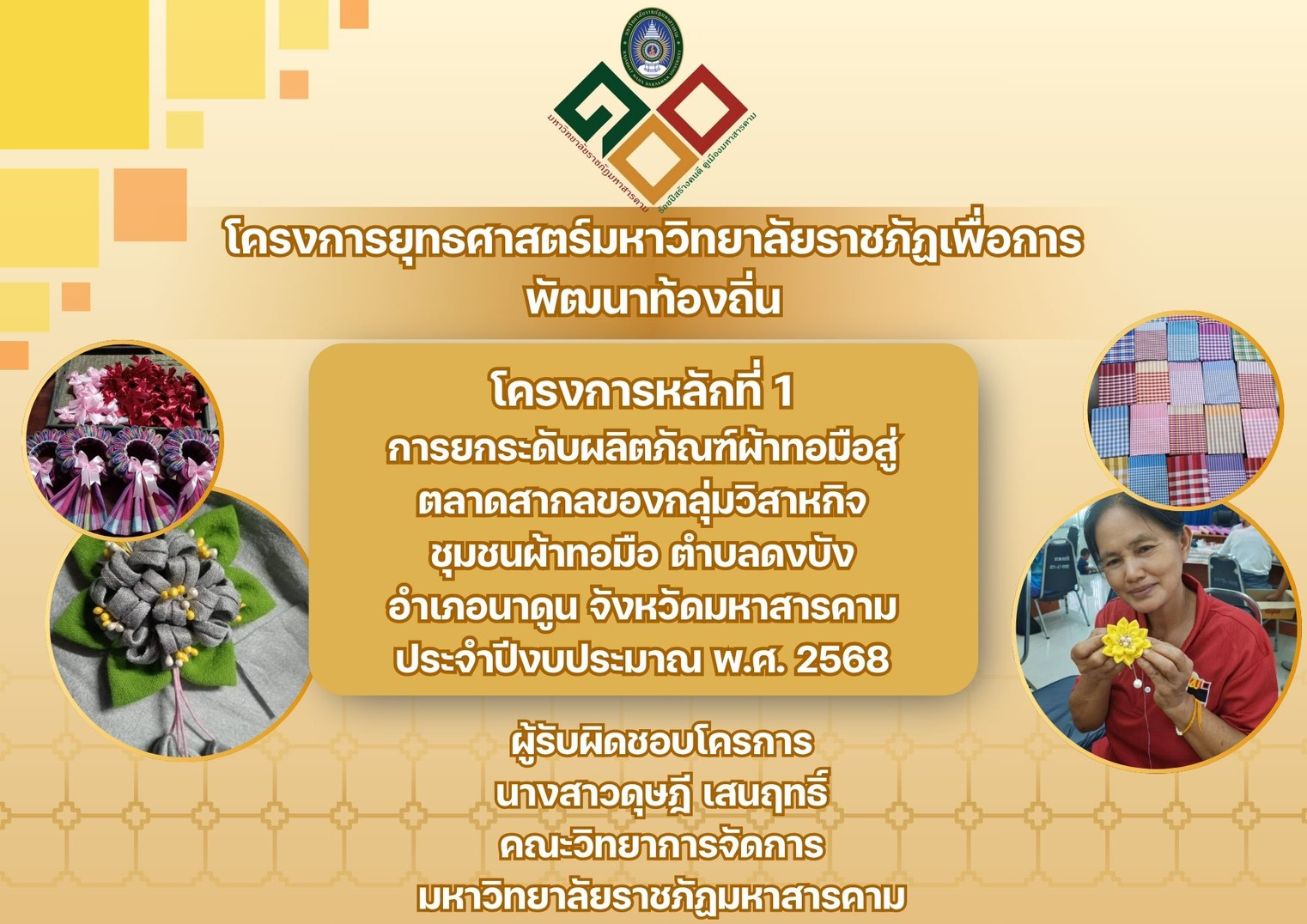
Comprehensive Mushroom Cultivation and Product Processing for Sustainable Income Generation: The Case of Ban Koo Rang Community Enterprise, Kamphu Subdistrict, Phayakkhaphum Phisai District, Maha Sarakham Province: “Economic Mushrooms”
ผู้รับผิดชอบ ให้ข้อมูล : Asst. Prof. Dr. Kobchai Nikornpittaya
SDG ที่เกี่ยวข้อง
เป้าหมายย่อยความสอดคล้องกับยุทธศาสตร์มหาวิทยาลัย : พันธกิจสัมพันธ์เพื่อการพัฒนาท้องถิ่นอย่างสร้างสรรค
แหล่งงบประมาณ : งบประมาณแผ่นดิน
กลุ่มเป้าหมาย : ชุมชน
Project Implementation Area : Nong Sa-nom Village ตำบล Kam Pu อำเภอ Phayakkhaphum Phisai จังหวัด Maha Sarakham 44110
Project Duration: June 7, 2025 – September 7, 2025
Objectives :
1. To provide the community with knowledge and skills for efficient mushroom cultivation.
2. To encourage hands-on practice, enabling community members to pursue mushroom cultivation as a primary or supplementary occupation.
3. To improve the quality of life for community members.
Activities :
Project Preparation:
The preparation for organizing the project focused on building mutual understanding among all participants in the implementation process. Meetings were held with the working committee and local leaders to ensure readiness and to plan community meetings aimed at enhancing understanding of the project. Knowledge transfer activities were also prepared to create sustainable income for the community.
1. Conducted preparatory meetings to assign responsibilities related to community studies, develop project operation plans, create community maps, plan community participation activities, and prepare for living and working within the community.
2. Conducted field visits to explain the background and objectives of the project to the community, and to study the existing problems and needs of the area.
3. Analyzed problems and designed appropriate knowledge, technology, and strategies for problem-solving.
4. Reviewed, analyzed, and synthesized information while engaging in participatory learning with the community.
5. Presented potential solutions to the community and summarized the agreed-upon approaches to problem-solving.
6. Provided knowledge transfer related to mushroom cultivation to generate sustainable income for the community.
Main Activity 2: Knowledge Transfer and Practical Training in Mushroom Cultivation
1. Used the problems identified during the survey to design a training curriculum that supports career development and project implementation through full community participation.
2. Procured equipment necessary for establishing mushroom learning centers, selected suitable locations and climates for constructing mushroom houses, and trained participants in building the cultivation structures and preparing mushroom substrate blocks.
3. Constructed mushroom houses and prepared mushroom substrate blocks as part of the hands-on training process.
4. Provided training on efficient mushroom cultivation technologies, including watering methods, pest control, and harvesting techniques.
Main Activity 3: Standard Development, Marketing Promotion, and Mushroom Processing
1. Conducted planning meetings and assigned responsibilities for developing marketing strategies.
2. Collaboratively designed and developed products by applying appropriate marketing strategies.
3. Worked with the community to create brand identity for the model mushroom cultivation group.
4. Co-designed modern and functional product packaging that meets consumer needs.
5. Expanded product distribution channels, both online and offline, to increase market accessibility.
6. Studied consumer demands and the market for processed mushroom products.
7. Provided technology transfer on mushroom processing techniques to enhance product value and quality.
Number of project participants: 20 people
Project Budget: 70,000 Baht
Results :
Economic aspect: Increase community income and reduce expenses through supplementary income and efficient local resource management.
Social aspect: Strengthen community cohesion through collaboration and professional networking.
Educational aspect: Foster knowledge of sufficiency economy and sustainable development within the target group.
Environmental aspect: Promote environmental conservation through sustainable agricultural practices.
Results society :
Community income increased, and quality of life improved.
Participation :
Integration of teaching and learning with knowledge transfer to the community.
Project continuity :
Continuous monitoring and product development support for the community.
Problems obstacles :
The community lacks knowledge and practical skills in performing work.
Improvement :
Provide continuous knowledge transfer and training to the community.
Suggestions :
-
